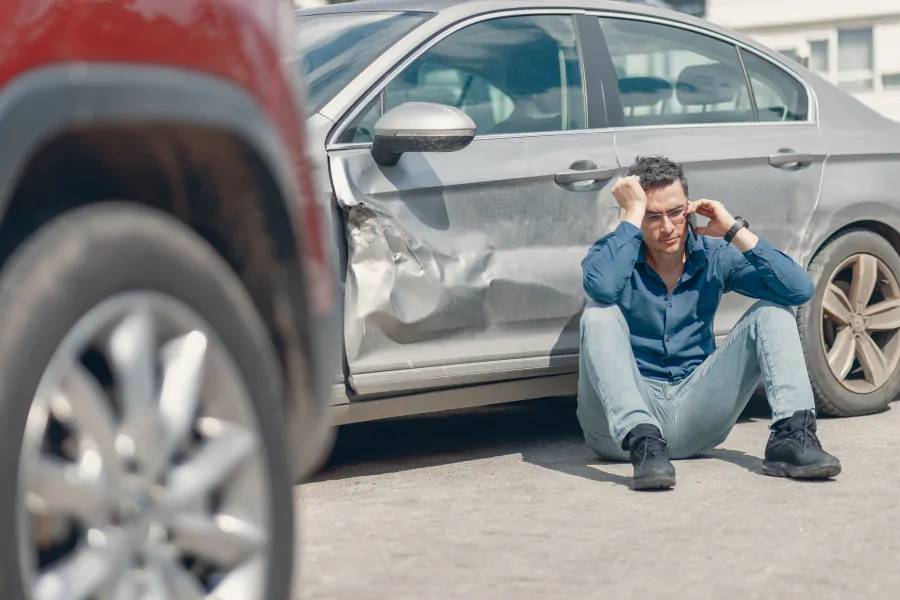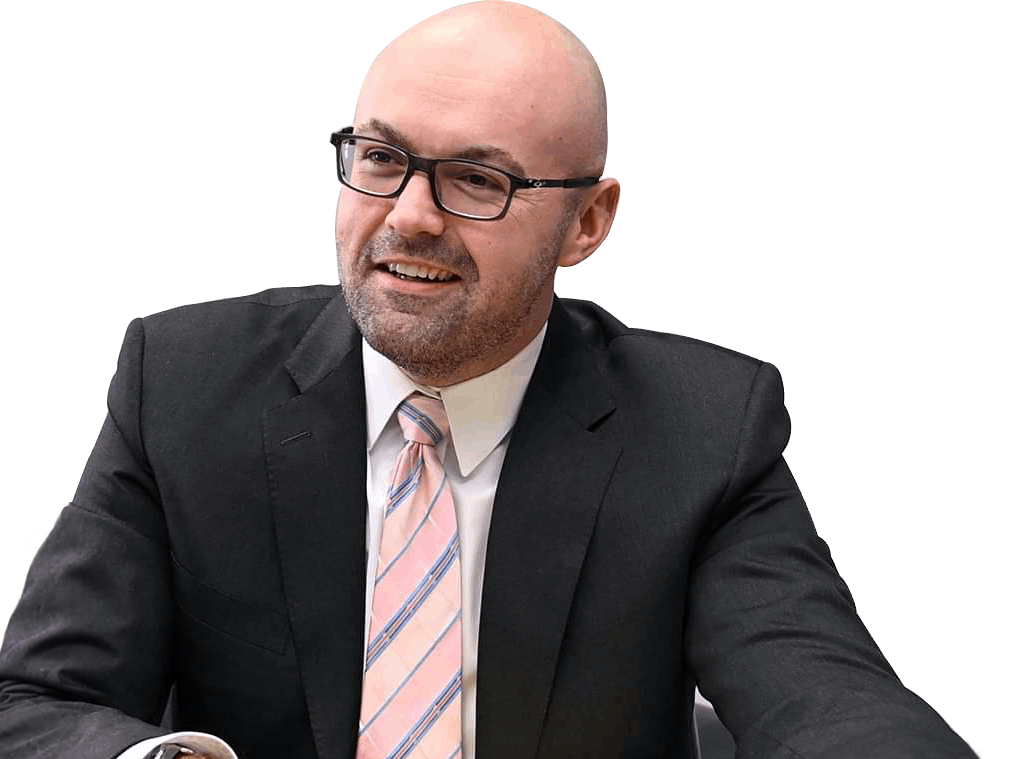TOP Accident Lawyers in Sycamore

We are frequently called upon throughout the State of Illinois to represent victims who have been injured due to the negligence of others. At the time of writing this, our office has represented folks in 35 of Illinois’ 102 counties. If you or your loved ones have been hurt, we can help. We can come to you or you can come to us.
I’ve Been in an Auto Accident in Sycamore. What Do I Do?
If your case stems from a car accident in Sycamore you’re most likely going to have one of the following two law enforcement agencies respond to your crash.
- Sycamore Police Department at 535 DeKalb Ave. Sycamore, IL 61078, 815-895-2123, or on the web.
- or the DeKalb County Sheriff’s Department at 150 N. Main St. Sycamore, IL 61078, 815-895-7260 or on the web.
Once you have contacted them for a copy of your crash report, if you provide this information to us we can begin your case by opening up a claim with the other insurance company, and/or your own insurance company to notify them that an injury has occurred, and to initiate a property damage claim for your vehicle. From there we can assist you and your family in the following ways:
- Assisting you with obtaining proper medical care
- Assisting with your medical billing and general record keeping
- Assist you with obtaining temporary financial relief with a third party financing company (if necessary) if your injury has impacted your ability to work and provide for your required expenses.
- Attend traffic court hearings with you, or on your behalf
- Resolve insurance issues
- And most importantly, fight for the compensation you’re entitled to.
How Much is My Sycamore Personal Injury Case Worth?
Common injuries we handle in personal injury cases are broken bones, fractures, ligament strains, and concussions. If you have any injuries stemming from an auto accident the most important thing you can do is to seek treatment for all injuries.
While we can never tell a client when they come in how much a case is worth, one way that we’re able to appraise the value of a case is how much medical treatment someone had to endure, and then discuss with the client how the injury impacted their day-to-day life. Were they able to play with their children, attend work, take a shower, pick up items to perform household chores, drive to medical appointments, etc. Once we discuss with you what a reasonable number might be, we submit that demand to the responsible insurance company that was covering the Defendant/Tortfeasor (person who caused your injury).
If they agree to pay the specified amount this is called a “Settlement”. If they refuse to pay what’s fair, or offer an amount lower than you wish to take this is when we would prepare a lawsuit, file it with our county circuit clerk’s office, have the defendant/tortfeasor served, and set the case ultimately for a trial so that a DeKalb County jury can determine what a fair recovery is for your personal injury case. There are key areas after a lawsuit is filed that may allow a settlement to occur even after a lawsuit is filed but the biggest threat an injured person has, is that their lawyer will drag the insurance company through the mud in front of a jury. Also, there are no hard and fast rules on what a fair amount might be for any case generally. Fair is ultimately what the client thinks is fair, and then adjusted to what previous cases may have been assigned at trial in their respective area. You may have heard that the value of a case is 3 times the total of medical bills. While that sometimes can be a standard metric on some cases, often times it falls critically short. For example if the injured party had a large income that was curtailed or reduced based on the permanence of the injury sustained, or if it’s a lifetime debilitating injury, a simple calculation of medical bills being multiplied doesn’t compare to the amount of financial loss a victim would suffer if that was the bench mark that was applied to appraising their claim.
As an example if your case involved a fractured sternum with a typical recovery, and a normal amount of medical appointments, we can typically find a similar case within the surrounding area and see how much a jury awarded in that real case. We can then provide that case information to the insurance company and say this is what we’re likely to get at trial, and we’re going to ask for even more because our case is distinguishable in these other ways, etc. Simply being prepared, and being willing to take cases to trial is one sure fire way to get a better recovery for all clients than what will happen if someone brings on a lawyer that does not file lawsuits or tries to handle their case on their own.
Uninsured Drivers
By law, all Illinois drivers are required to carry liability insurance coverage of $25,000 per person and $50,000 per accident, according to the Illinois Secretary of State. Despite these requirements, more than 13% of drivers on Illinois roads and highways operate vehicles without any liability insurance, according to data from the Insurance Research Council.
So what happens if an uninsured driver causes a crash that injures you?
Recognizing how pervasive uninsured drivers are, most automobile insurance companies offer uninsured motorist coverage (often referred to as UM coverage). In these situations, after it has been established that the at-fault driver did not carry any insurance at the time of a crash, a claim may be presented to the injured party’s insurance company, which essentially stands in the place of the person who caused the accident.
While the logistics of presenting a claim to your auto insurance company for an accident that you did not cause may seem strange, you are entitled to the same types of damages that you would have had the offending driver carried insurance.
On a similar note, when a driver who causes an accident has insufficient liability coverage to compensate an injured party for their injuries — either an underinsured motorist claim or UIM claim — may be made with the insured party’s auto insurer.
How Are Motor Vehicle Injury Cases Governed?
Motor vehicle accidents are governed by the law of negligence. In general, drivers must exercise “reasonable care under the circumstances.” A deviation from this standard of care may require the at-fault party to pay for the damages caused. However, who is determined to be the at-fault party is not always clear. This can quickly turn into a case of “he said, she said.” It can be difficult to know what actually happened and who is legally at fault. A consultation with a personal injury attorney can give you a clear and unbiased opinion of liability in your case, and help you better understand your options.
Damages are the monetary compensation awarded to an injured party after an accident. They can include medical bills, pain and suffering, disability, disfigurement, permanent impairment, lost wages, property damage, etc. Consulting an attorney early on in your case is the best way to ensure that your damages have been properly documented so that you receive fair value for your claim.
Illinois Time Limits on Filing Suit

Illinois sets a time limit of two years to file a personal injury lawsuit in the state’s civil court system. In most cases, this two-year time limit, known as a “statute of limitations,” begins to run on the date of the accident. Sometimes, however, a statute of limitations might run from the date that you discovered you were injured, rather than the date of the event that injured you. This later date is known as a “discovery date.”
For injury claims against a city or county, you have one year to file a lawsuit. The time limit to sue the state is generally two years, but you must file a formal claim within one year in order to sue.
Get in Touch
For an honest, free, and compassionate consultation about your Sycamore, Illinois personal injury case, feel free to call or text message us confidentially at (815) 964-8303. Remember, our service comes at absolutely no cost to you unless we earn a recovery on your behalf. Let our lawyers help you or your loved one navigate the legal side of your case and fight for your financial recovery, while you focus on your physical recovery.

